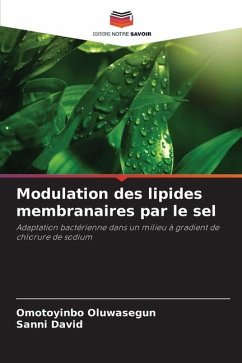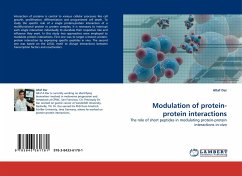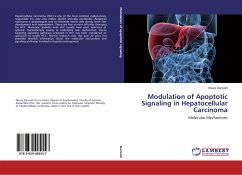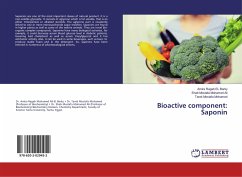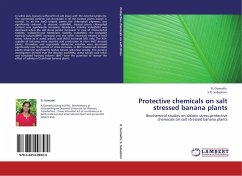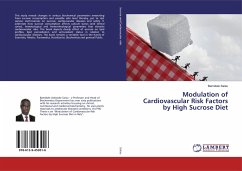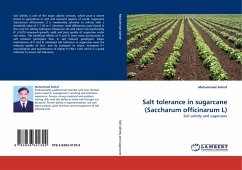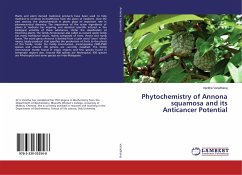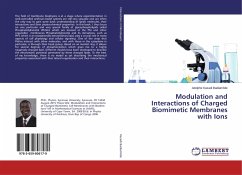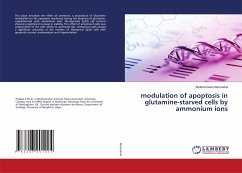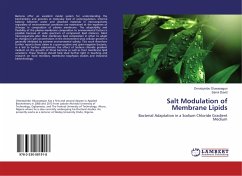
Salt Modulation of Membrane Lipids
Bacterial Adaptation in a Sodium Chloride Gradient Medium
Versandkostenfrei!
Versandfertig in 6-10 Tagen
33,99 €
inkl. MwSt.

PAYBACK Punkte
17 °P sammeln!
Bacteria offer an excellent model system for understanding the biochemistry and genetics at molecular level of osmoregulation. Internal balance between water and dissolved materials in microorganisms regardless of environmental conditions are maintained at the expenses of changes in composition of plasma membrane. The adaptability and flexibility of the plasma membrane composition to environmental factors is possible because of wide spectrum of component lipid mixtures. Most microorganisms alter their membrane lipid composition in other to adapt to changes in salt concentration in the environm...
Bacteria offer an excellent model system for understanding the biochemistry and genetics at molecular level of osmoregulation. Internal balance between water and dissolved materials in microorganisms regardless of environmental conditions are maintained at the expenses of changes in composition of plasma membrane. The adaptability and flexibility of the plasma membrane composition to environmental factors is possible because of wide spectrum of component lipid mixtures. Most microorganisms alter their membrane lipid composition in other to adapt to changes in salt concentration in the environment since cellular growth is generally inhibited by extreme environmental salinity. This work therefore further reports these claims in a gram positive and gram negative bacteria, in a bid to further substantiate the effect of Sodium chloride gradient medium on the growth of these bacteria as well as their membrane lipid variations. These findings should help shed further light in teaching and research on food microbes, membrane biophysics studies and industrial biotechnology.



